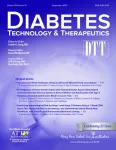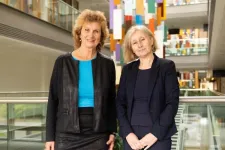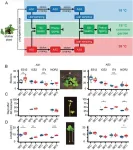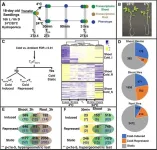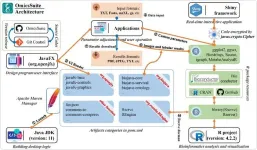(Press-News.org) Scientists from The Florey are among the world’s leading stroke experts who have mapped out how researchers and clinicians can improve outcomes for people who have survived a stroke.
The third Stroke Recovery and Rehabilitation Roundtable, an initiative of the International Stroke Recovery and Rehabilitation Alliance, has made a series of key recommendations about managing fatigue, measuring mobility, harnessing non-invasive brain stimulation technologies and improving how trials are designed. The highly influential gathering of world stroke experts published their findings in a special edition of International Journal of Stroke.
Associate Professor Kate Hayward from The Florey and University of Melbourne in Australia, co-chaired and convened the current roundtable, which was established by fellow Florey stroke expert Professor Julie Bernhardt in 2016.
“The roundtables aim to address gaps that are hampering progress across the field of stroke recovery and rehabilitation. Momentum is gathering in stroke recovery and it’s so important that we work together, pulling in the right direction, for the benefit of the millions of people globally who are affected by stroke,” Associate Professor Hayward said.
“Post-stroke fatigue, for instance, is common and complex, yet very little is known about it. To address this, an expert panel of researchers and people living with stroke sought to define fatigue, create a roadmap for future research and design a new fatigue assessment tool,” she said.
The Florey’s Professor Julie Bernhardt said the roundtable’s recommendations are essential reading for clinicians and researchers in the field of stroke recovery and rehabilitation.
“It is through these collective actions that we can accelerate progress towards effective treatments that enhance the lives of the millions of people affected by stroke each year.
“The vision of our International Stroke Recovery and Rehabilitation Alliance is a world where global collaboration leads to major breakthroughs for people with stroke. Consensus building with these international taskforce recommendations is having impact and are an essential part of us achieving our vision,” Professor Bernhardt said.
Fatigue after stroke
The fatigue panel, led by University of Newcastle Professor Coralie English and University of Edinburgh Professor Gillian Mead, noted that fatigue affects almost half of all people living with stroke, yet there are no clear recommendations for preventing, recognising, treating or managing it.
The taskforce defined post-stroke fatigue as “a feeling of exhaustion, weariness or lack of energy that can be overwhelming, and which can involve physical, emotional, cognitive and perceptual contributors, which is not relieved by rest and affects a person’s daily life.”
They recommended that everyone who has had a stroke be assessed using a new Stroke Fatigue Clinical Assessment Tool, which asks a series of questions to ensure that fatigue isn’t missed, and to draw attention to potentially modifiable factors. Questions include whether the patient:
feels tired all the time
feels sad, depressed, anxious or stressed
has trouble sleeping
lacks exercise or misses meals
has trouble remembering or concentrating
feels fatigued after talking or listening to others talk.
The panel recommended future research investigates psycho-education interventions such as cognitive behavioural therapy, exercise, anti-depressants and neuromodulation therapies.
Fatigue taskforce co-lead, Professor English, said: “For many people living with stroke, fatigue is their number one issue. For too long this area of stroke recovery has been neglected in research. We hope our paper will inspire researchers to work in this area and motivate breakthroughs that will improve the lives of people living with post-stroke fatigue.”
Non-invasive brain stimulation and stroke
A second panel, led by University of Ottawa’s Associate Professor Jodi Edwards and University of Montreal’s Professor Numa Dancause, focused on finding ways to eliminate barriers for the use of non-invasive brain stimulation technologies as a treatment for stroke rehabilitation. The expert panel found that there is experimental and clinical evidence supporting such technologies as safe and potentially effective adjuncts to therapy post-stroke, yet their use is largely limited to treating major depression and pain.
Brain stimulation taskforce co-lead, Associate Professor Edwards, said: “Our panel sought to identify missing evidence for how to optimise these technologies for use as a standard treatment in post-stroke care. Surprisingly, we found that in addition to evidence gaps, there were major limitations with existing trials. This means as a field we are much farther from having the evidence necessary to optimize these technologies than initially thought. We propose a set of core recommendations and put forward a new checklist for future studies and clinical trials to help advance the field of brain stimulation post-stroke towards a pathway for translation to the clinic.”
Mobility and stroke
A third panel, led by Amsterdam University Medical Centre’s Professor Gert Kwakkel and KU Leuven’s Professor Geert Verheyden, recommended ways researchers can improve data on post-stroke mobility, a key priority for stroke survivors. The mobility panel said it was essential for researchers to use standardised instruments to enable data from different projects to be compared. The members also agreed on metrics, definitions and instruments that researchers should use to measure aspects of mobility including balance, walking independence and walking endurance.
Mobility taskforce co-lead, Professor Kwakkel, said: “Mobility problems are experienced by 80 per cent of stroke survivors and often the most important goal for many post-stroke as it affects their independence and quality of life. However, mobility is a complex construct that encompasses different domains that require different measurement instruments to assess recovery. In this panel, we achieved consensus on how and when to measure balance and mobility problems of people included in stroke recovery and rehabilitation studies.”
Research trials for stroke
The fourth roundtable, led by Associate Professor Hayward and Washington University Professor Catherine Lang, focused on trial design, specifically the control comparator group used in preclinical and clinical trials of stroke recovery interventions. This panel developed the CONtrol DeSIGN (CONSIGN) decision support tool to address challenges identified and enhance control comparator selection, description, and reporting.
Associate Professor Hayward, said: “Identifying an appropriate type of control to use in a preclinical or clinical trial is challenging, yet critically important. The benefit of an experimental intervention is established relative to a pre-specified control, and poor selection can reduce the ability to demonstrate a difference between the two.”
Scientists from The Florey are among the world’s leading stroke experts who have mapped out how researchers and clinicians can improve outcomes for people who have survived a stroke.
The third Stroke Recovery and Rehabilitation Roundtable, an initiative of the International Stroke Recovery and Rehabilitation Alliance, has made a series of key recommendations about managing fatigue, measuring mobility, harnessing non-invasive brain stimulation technologies and improving how trials are designed. The highly influential gathering of world stroke experts published their findings in a special edition of International Journal of Stroke.
Associate Professor Kate Hayward from The Florey and University of Melbourne in Australia, co-chaired and convened the current roundtable, which was established by fellow Florey stroke expert Professor Julie Bernhardt in 2016.
“The roundtables aim to address gaps that are hampering progress across the field of stroke recovery and rehabilitation. Momentum is gathering in stroke recovery and it’s so important that we work together, pulling in the right direction, for the benefit of the millions of people globally who are affected by stroke,” Associate Professor Hayward said.
“Post-stroke fatigue, for instance, is common and complex, yet very little is known about it. To address this, an expert panel of researchers and people living with stroke sought to define fatigue, create a roadmap for future research and design a new fatigue assessment tool,” she said.
The Florey’s Professor Julie Bernhardt said the roundtable’s recommendations are essential reading for clinicians and researchers in the field of stroke recovery and rehabilitation.
“It is through these collective actions that we can accelerate progress towards effective treatments that enhance the lives of the millions of people affected by stroke each year.
“The vision of our International Stroke Recovery and Rehabilitation Alliance is a world where global collaboration leads to major breakthroughs for people with stroke. Consensus building with these international taskforce recommendations is having impact and are an essential part of us achieving our vision,” Professor Bernhardt said.
Fatigue after stroke
The fatigue panel, led by University of Newcastle Professor Coralie English and University of Edinburgh Professor Gillian Mead, noted that fatigue affects almost half of all people living with stroke, yet there are no clear recommendations for preventing, recognising, treating or managing it.
The taskforce defined post-stroke fatigue as “a feeling of exhaustion, weariness or lack of energy that can be overwhelming, and which can involve physical, emotional, cognitive and perceptual contributors, which is not relieved by rest and affects a person’s daily life.”
They recommended that everyone who has had a stroke be assessed using a new Stroke Fatigue Clinical Assessment Tool, which asks a series of questions to ensure that fatigue isn’t missed, and to draw attention to potentially modifiable factors. Questions include whether the patient:
feels tired all the time
feels sad, depressed, anxious or stressed
has trouble sleeping
lacks exercise or misses meals
has trouble remembering or concentrating
feels fatigued after talking or listening to others talk.
The panel recommended future research investigates psycho-education interventions such as cognitive behavioural therapy, exercise, anti-depressants and neuromodulation therapies.
Fatigue taskforce co-lead, Professor English, said: “For many people living with stroke, fatigue is their number one issue. For too long this area of stroke recovery has been neglected in research. We hope our paper will inspire researchers to work in this area and motivate breakthroughs that will improve the lives of people living with post-stroke fatigue.”
Non-invasive brain stimulation and stroke
A second panel, led by University of Ottawa’s Associate Professor Jodi Edwards and University of Montreal’s Professor Numa Dancause, focused on finding ways to eliminate barriers for the use of non-invasive brain stimulation technologies as a treatment for stroke rehabilitation. The expert panel found that there is experimental and clinical evidence supporting such technologies as safe and potentially effective adjuncts to therapy post-stroke, yet their use is largely limited to treating major depression and pain.
Brain stimulation taskforce co-lead, Associate Professor Edwards, said: “Our panel sought to identify missing evidence for how to optimise these technologies for use as a standard treatment in post-stroke care. Surprisingly, we found that in addition to evidence gaps, there were major limitations with existing trials. This means as a field we are much farther from having the evidence necessary to optimize these technologies than initially thought. We propose a set of core recommendations and put forward a new checklist for future studies and clinical trials to help advance the field of brain stimulation post-stroke towards a pathway for translation to the clinic.”
Mobility and stroke
A third panel, led by Amsterdam University Medical Centre’s Professor Gert Kwakkel and KU Leuven’s Professor Geert Verheyden, recommended ways researchers can improve data on post-stroke mobility, a key priority for stroke survivors. The mobility panel said it was essential for researchers to use standardised instruments to enable data from different projects to be compared. The members also agreed on metrics, definitions and instruments that researchers should use to measure aspects of mobility including balance, walking independence and walking endurance.
Mobility taskforce co-lead, Professor Kwakkel, said: “Mobility problems are experienced by 80 per cent of stroke survivors and often the most important goal for many post-stroke as it affects their independence and quality of life. However, mobility is a complex construct that encompasses different domains that require different measurement instruments to assess recovery. In this panel, we achieved consensus on how and when to measure balance and mobility problems of people included in stroke recovery and rehabilitation studies.”
Research trials for stroke
The fourth roundtable, led by Associate Professor Hayward and Washington University Professor Catherine Lang, focused on trial design, specifically the control comparator group used in preclinical and clinical trials of stroke recovery interventions. This panel developed the CONtrol DeSIGN (CONSIGN) decision support tool to address challenges identified and enhance control comparator selection, description, and reporting.
Associate Professor Hayward, said: “Identifying an appropriate type of control to use in a preclinical or clinical trial is challenging, yet critically important. The benefit of an experimental intervention is established relative to a pre-specified control, and poor selection can reduce the ability to demonstrate a difference between the two.”
END
International experts push for innovation to improve stroke recovery
Scientists from The Florey are among the world’s leading stroke experts who have mapped out how researchers and clinicians can improve outcomes for people who have survived a stroke.
2023-10-13
ELSE PRESS RELEASES FROM THIS DATE:
Using closed-loop in type 1 pregnancy associated with type 1 diabetes
2023-10-13
A new study endorses closed-loop use in type 1 diabetes pregnancy and highlights how the technology can facilitate positive pregnancy experiences. The study is published in the peer-reviewed journal Diabetes Technology & Therapeutics (DTT). Click here to read the article now.
Julia Lawton, from the University of Edinburgh, and coauthors, on behalf of the AiDAPT Collaborative Group, interviewed closed-loop participants in the Automated insulin Delivery Amongst Pregnant women with T1D (AiDAPT) trial. “Women described how closed-loop lessened the physical and mental demands ...
A step towards understanding early interventions for Huntington’s Disease
2023-10-13
Huntington’s Disease is the most common neurodegenerative disorder controlled by a single gene and is characterized by motor and cognitive deficits and psychiatric symptoms. Currently, no treatments can stop or reverse the disease, but new research from Boston Children’s Hospital suggests that there might be a way to protect the brain and prevent or slow cognitive decline.
Research from the lab of Beth Stevens, PhD suggests that parts of the immune system – complement proteins and microglia – mediate the loss of specific synapses connecting the brain’s cortex and striatum. The findings, recently published in Nature Medicine, could ...
Landmark publication calls for increased attention to workplace mental health
2023-10-13
A landmark scientific article on the workplace as a major determinant of health is published today (Thursday, 12 October) in The Lancet, and reveals a global picture of the work-related causes of mental health conditions.
Carried by University College Cork (UCC) researchers for the Lancet Series on work and health, the paper illustrates that major progress in population health can be made by an increased focus on improving people’s work environments.
The paper, ‘Work-related causes of mental health conditions and interventions for their improvement in workplaces’, ...
DNA methylation: The hidden mechanism enabling plants to adapt in a warmer world
2023-10-13
As global warming continues to redefine ecosystems, plants are increasingly tasked with swift adaptation to ensure their survival. One primary mechanism facilitating such rapid adaptation is epigenetic memory, specifically DNA methylation. DNA methylation, a form of epigenetic modification, involves the addition of a methyl group to the cytosine bases of the DNA, altering its accessibility in chromatin and modulating gene expression. In the context of a warming climate, changes in DNA methylation can be triggered by environmental factors like increased temperature. Such epigenetic adaptations ...
Unlocking the secrets of cold tolerance: a deep dive into tomato plants' molecular responses to chilling stress
2023-10-13
Cold sensitivity poses a significant challenge for certain essential crops. While there's an indication that these plants may possess cold acclimation capabilities, the molecular dynamics, particularly involving the CRT binding factor (CBF) family, are not fully explored. One primary concern has been the disparity in cold tolerance between temperate plants and tropical species such as the tomato. Additionally, the accumulation of small metabolites, termed cryoprotectants, plays a crucial role in enabling plants to resist damage from low temperatures. Adding ...
OmicsSuite: A customized and pipelined suite for analysis and visualization of multi-omics big data
2023-10-13
Abstract:
With the advancements in high-throughput sequencing technologies such as Illumina, PacBio, and 10X Genomics platforms, and gas/liquid chromatography-mass spectrometry, large volumes of biological data in multiple formats can now be obtained through multi-omics analysis. Bioinformatics is constantly evolving and seeking breakthroughs to solve multi-omics problems, however it is challenging for most experimental biologists to analyze data using command-line interfaces, coding, and scripting. Based on experience with multi-omics, we have developed OmicsSuite, a desktop suite that comprehensively integrates statistics and multi-omics analysis and visualization. The suite ...
Stress wrecks male big brown bat fertility during breeding season
2023-10-13
Even on a good day the environment can be wildly unpredictable, from unexpected gusts of wind to food scarcity, and as humans continue to edge out the natural world, the stress on wild populations is increasing. ‘Bats are critical for the maintenance and stability of many terrestrial ecosystems’, say Mattina Alonge [University of California, Berkeley (UCB), USA] and Lucas Greville (McMaster University, Canada) and the animals are known to be particularly sensitive when under strain. But little was known about the impact that stress might have on their ability to reproduce. Concerned about the effect of stress on already vulnerable bat populations, Alonge and her colleagues ...
Almost half of patients with skin disease suffer from sleep disturbances, global study finds
2023-10-13
(Friday, 13 October 2023, Berlin, Germany) Almost half (42%) of patients with skin disease experience sleep disturbances, a major study presented today at the European Academy of Dermatology and Venereology (EADV) Congress 2023 has revealed.1
The ALL PROJECT, a comprehensive international research initiative, analysed over 50,000 adults across 20 countries to assess the impact of skin diseases.2
Notably, these sleep disturbances were found to have broader implications on patients' quality of life. Nearly half (49%) of patients with skin disease reported reduced productivity at work, in contrast with just one in five (19%) participants without a skin disease.1
The ...
Kraft Family Blood Donor Center expands eligibility for donors
2023-10-12
Boston – The Kraft Family Blood Donor Center, which provides lifesaving blood products to patients at Dana-Farber Cancer Institute and Brigham and Women’s Hospital, announced today that it has finished implementing a more inclusive blood donation process, in alignment with updated guidelines issued by the U.S. Food and Drug Administration (FDA) that will allow many gay and bisexual men to donate blood and platelets.
On May 11, 2023, the FDA changed its policy to reflect that deferring prospective blood donors based on sexual orientation is no longer supported by data. ...
200-year-old DNA helps map tiny fly’s genetic course to new lands, modern times
2023-10-12
Back when the biggest fly enthusiasts of 19th century Sweden — Carl Fredrik Fallén, for one, and later Johan Wilhelm Zetterstedt — were collecting insects for what would become Lund University’s entomological collections, they wondered exactly what was that buzzing coming from their can of raisins.
Skip forward 200 years, and the humble fruit fly, known better to geneticists as Drosophila melanogaster, is one of the most thoroughly studied animals on the planet. And DNA from Fallén and Zetterstedt’s centuries-old curiosities are still revealing new insights into the fly’s evolution as it spread alongside ...
LAST 30 PRESS RELEASES:
Mount Sinai, Uniformed Services University join forces to predict and prevent diseases before they start
Science of fitting in: Do best friends or popular peers shape teen behavior?
USF study: Gag grouper are overfished in the Gulf; this new tool could help
New study from Jeonbuk National University finds current climate pledges may miss Paris targets
Theoretical principles of band structure manipulation in strongly correlated insulators with spin and charge perturbations
A CNIC study shows that the heart can be protected during chemotherapy without reducing antitumor efficacy
Mayo Clinic study finds single dose of non-prescribed Adderall raises blood pressure and heart rate in healthy young adults
Engineered immune cells show promise against brain metastases in preclinical study
Improved EV battery technology will outmatch degradation from climate change
AI cancer tools risk “shortcut learning” rather than detecting true biology
Painless skin patch offers new way to monitor immune health
Children with poor oral health more often develop cardiovascular disease as adults
GLP-1 drugs associated with reduced need for emergency care for migraine
New knowledge on heritability paves the way for better treatment of people with chronic inflammatory bowel disease
Under the Lens: Microbiologists Nicola Holden and Gil Domingue weigh in on the raw milk debate
Science reveals why you can’t resist a snack – even when you’re full
Kidney cancer study finds belzutifan plus pembrolizumab post-surgery helps patients at high risk for relapse stay cancer-free longer
Alkali cation effects in electrochemical carbon dioxide reduction
Test platforms for charging wireless cars now fit on a bench
$3 million NIH grant funds national study of Medicare Advantage’s benefit expansion into social supports
Amplified Sciences achieves CAP accreditation for cutting-edge diagnostic lab
Fred Hutch announces 12 recipients of the annual Harold M. Weintraub Graduate Student Award
Native forest litter helps rebuild soil life in post-mining landscapes
Mountain soils in arid regions may emit more greenhouse gas as climate shifts, new study finds
Pairing biochar with other soil amendments could unlock stronger gains in soil health
Why do we get a skip in our step when we’re happy? Thank dopamine
UC Irvine scientists uncover cellular mechanism behind muscle repair
Platform to map living brain noninvasively takes next big step
Stress-testing the Cascadia Subduction Zone reveals variability that could impact how earthquakes spread
We may be underestimating the true carbon cost of northern wildfires
[Press-News.org] International experts push for innovation to improve stroke recoveryScientists from The Florey are among the world’s leading stroke experts who have mapped out how researchers and clinicians can improve outcomes for people who have survived a stroke.
